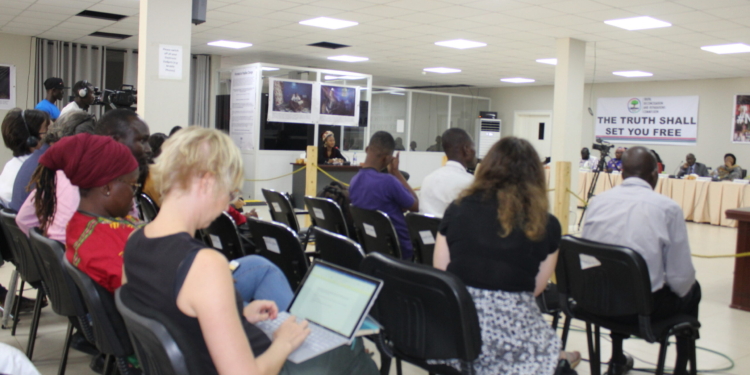By Zainab Jobarteh
Amadi Sowe has no time for the transitional justice efforts that are currently going on in The Gambia.
He declares that he has no faith in the Truth, Reconciliation and Reparations Commission (TRRC), cynically asserting that the government will never act on its final report.
After all, he quips, they have already forgiven and reinstated some of the perpetrators even before the process is over.
I had wanted to talk to Amadi about his arrest in 2006 in connection with an alleged coup against Yahya Jammeh.
He irritably told me that he was done with interviews, then ranted for more than an hour about his anger and disappointment at the country’s justice system.
I was taken aback. When I had called earlier to schedule an interview with Amadi, his younger brother, Dawda Sowe, had answered. Amadi was not available, but Dawda was willing to talk to me about his brush with security agents.
I was surprised to find Amadi at home when I arrived for the interview with his brother. I had assumed that he had travelled.
Amadi was adamant that he was not giving any more interviews about his ordeal. However, he had plenty to say about the injustice he had suffered.
He spent more than seven years in prison and has spoken to many journalists since his release in 2013, but has so far received no assistance. He said he no longer talks about his experiences because they only bring back painful memories. He was one of the civilians arrested in connection with the coup and had suffered in the cells. He accused human rights activists of using the suffering of victims like him to attract funding for themselves. He scornfully said cases such as his were a typical example of “monkey de work baboon de chop” (while the monkey is working, the baboon is eating).
He complained that all the military officials he was arrested with had been reinstated in their jobs. Some had been paid compensation and the ones who had developed health problems had been sent abroad for medical treatment. He and other civilian victims had been ignored and were struggling to take care of themselves after suffering the trauma of incarceration and torture. He seemed to have a problem with his eyes, which were red and teary. He explained that the Victim’s Centre had recently bought him a pair of spectacles.
Amadi said he had turned down the TRRC’s request to testify and appear on TV. Being a marabout, he believed it would tarnish his image among the faithful he served if it was known that he had been in prison even though he insisted that he was innocent. He was concerned that people might question his credibility and that this would ruin his only source of income to help his family.
He said he had been invited to many NGO offices, offered a cup of tea or coffee, and asked to recount his story, and now he was tired of remembering his ordeal. He insisted that he had no faith at all in the TRRC.
For Amadi, the victims’ testimonies at the TRRC were like rubbing salt in a wound. He was angry and bitter.
I think Dawda felt sorry for me that I was going away without the story I had come for, so he offered to narrate his own ordeal. He said that one day in March 2006, at around 10pm, a truck full of armed soldiers stopped outside the Sowe house. They arrested his brother, Amadi, and for 20 days the family did not know where he was.
One day Dawda received a phone call. He was told that his brother had asked for a prayer mat, prayer beads, and some clothes. He was told to deliver the supplies to Mile 2 Prison.
He became known at the prison because he frequently visited his brother. He was required to give his name and phone number. One day he received a call summoning him to the police headquarters in Banjul. He thought it had something to do with his brother’s case.
He asked his uncle to accompany him. To his surprise, he was arrested and accused of helping prisoners and conniving with them against the government. He was beaten up and ordered to pay D20,000. He said he still felt pain in one knee from the beating.
Amadi and Dawda were arrested because they lived in the house of a marabout in Senegal. The government agents believed the marabout was the spiritual counsellor of a group of soldiers plotting to overthrow Yahya Jammeh.
Dawda said he shared his brother’s scepticism about getting justice for their suffering.







